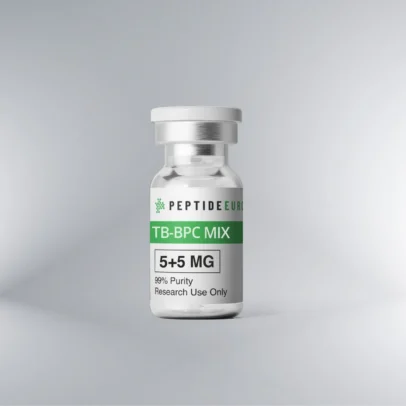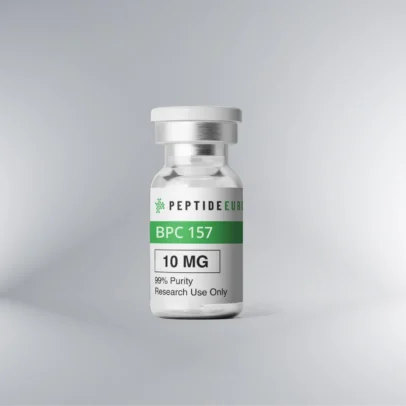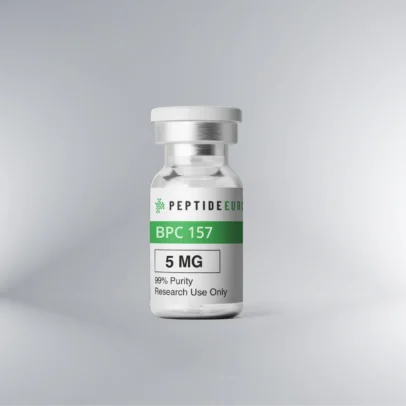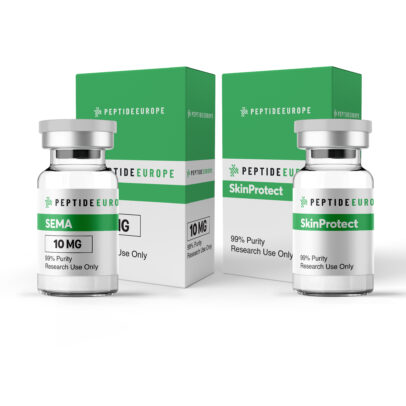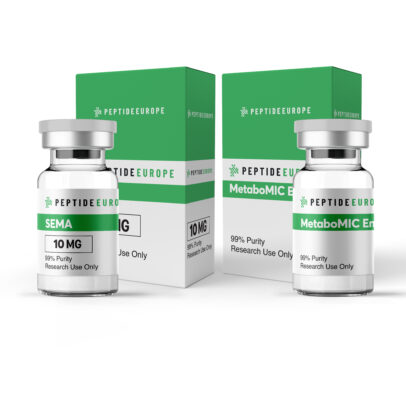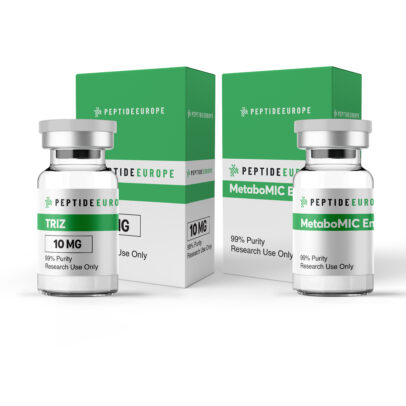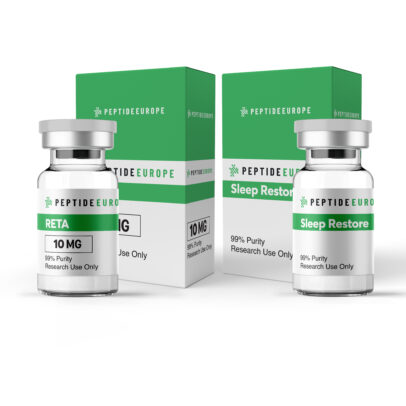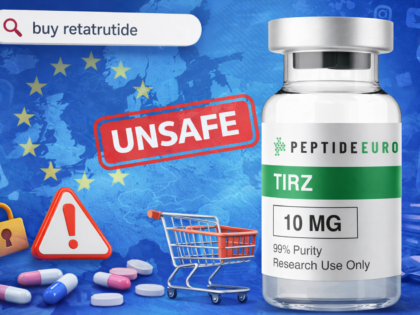How Do Peptides Support a Healthy Immune System?
-
PepEurope
- Posted on
- 0 comments

Peptide therapy is gaining popularity in the medical field due to its impressive ability to support and enhance immune health. These short chains of amino acids, known as peptides, play a vital role in a variety of biological functions, including immune regulation. How do Peptides Support immune health and why are they becoming a key part of modern therapies?
What are Peptides?
Peptides are short chains of amino acids, which are the building blocks of proteins. Although similar to proteins, peptides are much smaller, making them easier for the body to absorb and use. There are thousands of peptides in our bodies, each with a different function. Some peptides are naturally produced in the body, while others are introduced through supplements or therapies to provide specific health benefits.
In the context of immune health, peptides help regulate the immune response by stimulating immune cells and aiding tissue repair. They act as signaling molecules that bind to receptors on cells, instructing them to take specific actions, such as activating immune cells to fight infections.
How Do Peptides Support Immune System Function?
Peptides, and Thymosin Alpha-1 (TA-1) in particular, have been identified as key elements in strengthening the immune system. The thymus gland, responsible for regulating immune function, produces this peptide. As we age, thymus peptide production, including TA-1, declines, leading to a weakened immune response. This is where peptide therapy comes in.
Thymosin Alpha-1 plays a key role in activating T cells, which are the body's first line of defense against infection and disease. T cells include killer cells, which destroy infected or cancerous cells, and helper cells, which boost the activity of other immune cells. By increasing T cell function, TA-1 helps improve the body's immune response, making it more effective at fighting infections, including viruses and bacteria.
Clinical studies have shown that Thymosin Alpha-1 may be particularly beneficial in supporting those with chronic infections or autoimmune diseases. In fact, this peptide has been used in conjunction with vaccines to boost immune function, especially in immunocompromised individuals. It has also shown promising results in cancer treatment by helping the body detect and eliminate cancer cells.
TB BPC MIX
BPC 157 – 10MG
BPC 157 – 5MG
Peptides and Immune System Regulation
Peptide therapy uses specific peptides to stimulate the immune system, especially in people who have weakened immune function due to illness, aging, or chronic conditions. Common peptides such as Sermorelin, Ipamorelin, and CJC-1295 stimulate the pituitary gland and support the production of growth hormones, which have a significant impact on immune function. These peptides help rejuvenate the immune system, improve the body's ability to fight infections, and may even reduce the risk of autoimmune disease flares.
Peptides also support immune health by supporting tissue regeneration and reducing inflammation. This is especially helpful for people with autoimmune diseases, in which the immune system mistakenly attacks healthy cells. By reducing inflammation and supporting cell repair, peptides help maintain a balanced immune response.
Benefits of Peptide Therapy for Immune Health
Peptide therapy offers numerous benefits for people who want to strengthen their immune system, including:
- Enhanced immune response: Peptides like Thymosin Alpha-1 help activate T cells and increase overall immune system function, making the body more effective at fighting infections and diseases.
- Support for chronic infections: Peptides can help people suffering from chronic infections, autoimmune diseases, or diseases like Lyme disease by modulating the activity of the immune system and supporting healing.
- Improved immune modulation: Peptides help regulate immune responses, preventing over-responsiveness that leads to inflammation or flare-ups of autoimmune diseases.
- Anti-inflammatory effects: Many peptides reduce inflammation, which is key in treating chronic conditions such as arthritis and inflammatory bowel disease (IBD).
Peptides in Immune Research and Medicine
As demand for peptide therapy grows, research into their effects on the immune system is growing. In fact, peptides are increasingly being used to treat conditions that include viral infections and autoimmune diseases. There are now over 60 FDA-approved peptide drugs and over 140 in clinical trials, making peptide-based treatments an integral part of modern medicine.
One important study is the use of peptides to increase the effectiveness of vaccines, especially in people with weakened immune systems. This highlights the promising role of peptides in preventing viral infections, including COVID-19 and other viruses.
Sema Beauty & Slim (weight control / healthy skin)
Sema Metabolic Boost (Appetite / Metabolism / Energy)
Metabolic Boost Duo (Appetite Suppression / Energy / Metabolism)
Sleep and Slim Pack (weight control / sleep regeneration)
Is Peptide Therapy Safe?
Peptide therapy is generally considered safe when used under the supervision of a licensed medical professional. Side effects are minimal, and some patients may experience mild reactions such as injection site irritation or headaches that usually subside quickly. However, as with any therapy, it is important to consult with your doctor before beginning peptide therapy.
Summary
Peptides are quickly becoming a cornerstone of immune health support. By activating T cells, regulating immune responses, and reducing inflammation, peptides are a natural and effective way to boost your immune system. Whether you’re looking to fight chronic infections, support immune function as you age, or simply improve your overall health, peptide therapy may be the solution to help you optimize your immune health.
If you would like to learn more about how peptides can support your immune health, contact us at Pure Body Health for personalized treatment options. We are here to help you strengthen your immune system and improve your overall well-being.


